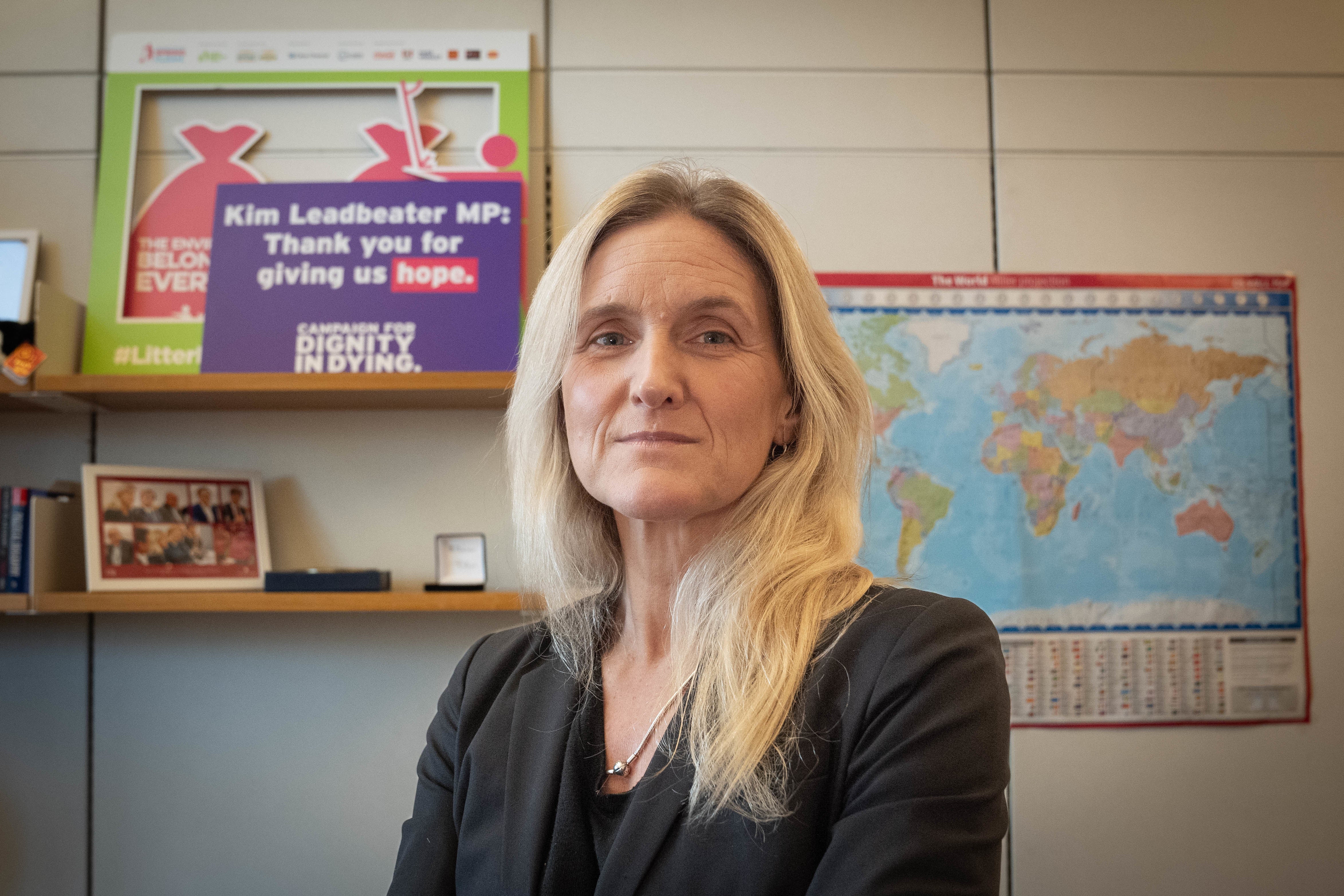Health secretary warns of ‘chilling slippery slope’ as he orders review of costs of assisted dying
Wes Streeting has asked the Department for Health and Social Care to look at costs of assisted dying bill
Your support helps us to tell the story
From reproductive rights to climate change to Big Tech, The Independent is on the ground when the story is developing. Whether it's investigating the financials of Elon Musk's pro-Trump PAC or producing our latest documentary, 'The A Word', which shines a light on the American women fighting for reproductive rights, we know how important it is to parse out the facts from the messaging.
At such a critical moment in US history, we need reporters on the ground. Your donation allows us to keep sending journalists to speak to both sides of the story.
The Independent is trusted by Americans across the entire political spectrum. And unlike many other quality news outlets, we choose not to lock Americans out of our reporting and analysis with paywalls. We believe quality journalism should be available to everyone, paid for by those who can afford it.
Your support makes all the difference.The health secretary has warned discussions over savings linked to assisted dying are a “chilling slippery slope” as he orders a review of the costs of the new bill.
When asked what cost analysis his department had carried out around whether there would be savings if patients were to choose assisted dying, Wes Streeting admitted he had asked Department for Health and Social Care officials to do a cost analysis.
It comes after Mr Streeting - who plans to vote against the assisted dying Bill when it is debated later this month - suggested there may need to be cuts to other NHS services if the changes are brought in.

During a press briefing at the NHS Provider’s annual conference, Mr Streeting said: I’ve asked my department to look at the costs that would be associated with providing a new service to enable assisted dying to go forward...
“That work is now underway, so I can’t give you a precise figure today. You do touch on the slippery slope argument, which is the potential for cost savings if people choose to opt for assisted dying rather than stay in the care of the care providers or the NHS.
“I think that is a chilling slippery slope argument, and I would hate for people to opt for assisted dying because they think they’re saving someone somewhere for money, whether that’s relatives or the NHS. And I think that’s one of the issues that MPs are wrestling with as they decide how to cast their vote.”
He added: “But this is a free vote. The government’s position is neutral.”

Mr Streeting, who was commenting after delivering a speech to the NHS Providers conference in Liverpool, said there were “choices and trade-offs”, adding that “any new service comes at the expense of other competing pressures and priorities”.
He added: “Now that doesn’t mean people should vote against it on that basis.
“People need to weigh up this choice in the way that we’re weighing up all these other choices at the moment.
“And you know, the point I made in my speech is, you know this is a system that always uses the word ‘and’ and ‘more’ and I think people can see the state of public finances, the state of our public services, and we do need to be in the business of making choices.”
The health secretary has confirmed he will be voting against the Bill, but added: “I have enormous respect for colleagues who are taking a different view.”
Labour MP Kim Leadbeater has described her proposed legislation as the “most robust” in the world, and said she expects hundreds of dying people might initially opt to use a service which could see patients press a button to end their lives.
The Terminally Ill Adults (End of Life) Bill will be debated and is likely to be voted on on November 29, the first Commons vote on assisted dying since 2015.
High-profile supporters of a change in the law include Dame Esther Rantzen, who is terminally ill and revealed in December that she had joined Dignitas in Switzerland because of the current law.
The broadcaster has hailed the “wonderful” Bill, but acknowledged it is likely to come into effect too late for her.

Join our commenting forum
Join thought-provoking conversations, follow other Independent readers and see their replies
Comments